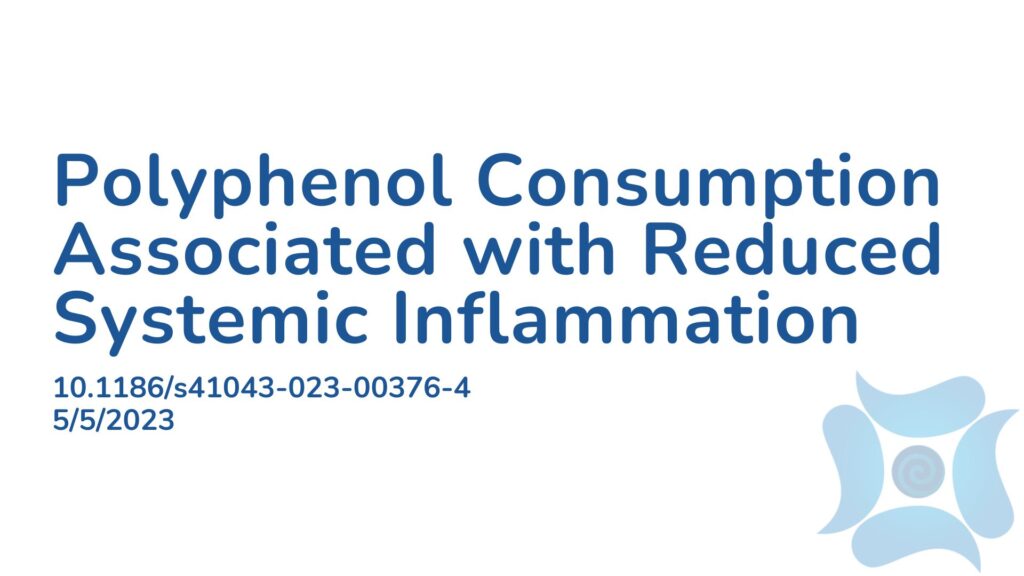Summary:
Numerous studies have shown that obesity is associated with chronic inflammation, which can often be mediated with dietary and lifestyle choices. Polyphenols are a group of metabolites found in plants that may play a role in reducing the risk of obesity, which then reduces the risk of other co-morbidities. This study investigated the link between polyphenols and obesity by looking at 391 overweight and obese Iranian women aged between 18 and 48. A food frequency questionnaire was used to analyse dietary intake as well as biomarkers such as weight, height, waist and hip circumference and parameters including inflammatory markers, triglycerides and total cholesterol. The findings showed there was an association between low polyphenol intake and obesity and that a high polyphenol intake may help individuals with obesity to reduce systemic inflammation. Foods high in polyphenols include berries, cacao, herbs and spices, nuts, coffee and teas.
Abstract:
Background: The evidence shows that obesity is associated with chronic inflammation in obese subjects. Polyphenols are a complex group of plant secondary metabolites that may play a role in reducing the risk of obesity and obesity-related diseases. Given the scarcity of evidence on the association between inflammatory markers and dietary polyphenols intake in overweight/obese Iranian women, the current study aims to investigate this link. Method: The present cross-sectional study was conducted on 391 overweight and obese Iranian women aged 18–48 years (body mass index (BMI) ≥ 25 kg/m2). A 147-item food frequency questionnaire (FFQ) was used to assess dietary intake, as well as anthropometric indices including weight, height, waist circumference (WC), and hip circumference (HC) and biochemistry parameters including triglyceride (TG), total cholesterol (Chole), low-density lipoprotein cholesterol (LDL-c), high-density lipoprotein cholesterol (HDL-c), serum glutamic pyruvic transaminase (SGPT), serum glutamic-oxaloacetic transaminase (SGOT), galactin-3 (Gal-3), monocyte chemoattractant protein-1 (MCP-1), transforming growth factor beta (TGF-β), interleukin-1 beta (IL_1β), plasminogen activator inhibitor-1 (PA-I), serum leptin concentrations, and C-reactive protein of high sensitivity (hs-CRP) in all participants. The inflammatory markers were assessed using the enzyme-linked immunosorbent assay (ELISA). Result: The findings revealed a significant negative association between flavonoids intake and MCP-1 (P = 0.024), lignans intake and MCP-1 (P = 0.017), and Gal-3 (P = 0.032). These significant associations were observed between other polyphenols intake and IL_1β (P = 0.014). There was also a significant positive association between other polyphenol intake and TGF-β (P = 0.008) and between phenolic acid intake and TGF-β (P = 0.014). Conclusion: Our findings suggest that a high polyphenol intake may help individuals to reduce systemic inflammation. Further large studies involving participants of different ages and genders are highly warranted.
Article Publication Date: 5/5/2023
DOI: 10.1186/s41043-023-00376-4



